Scientific committee 2024
Chair
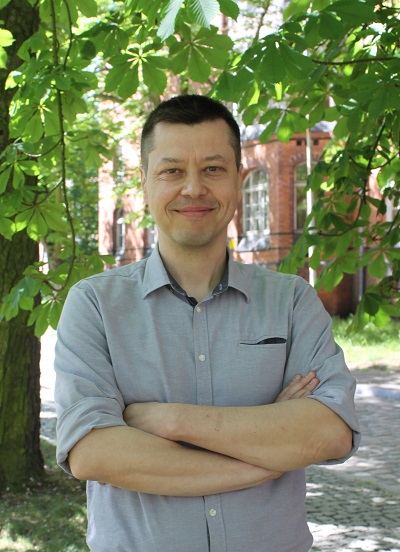
Grzegorz Chodaczek, Ph.D.,
Immunotherapy Group Leader at Łukasiewicz Research Network – PORT Polish Center for Technology Development
Graduated from the Wroclaw Medical University in 2001, where he studied at the Faculty of Pharmacy. In 2007, he received his Ph.D. degree in immunology from the Institute of Immunology and Experimental Therapy in Wroclaw, Poland.
Between 2005-2011 he was a research associate at the University of Texas Medical Branch at Galveston and then a postdoctoral fellow at the University of Texas MD Anderson Cancer Center in Houston, TX, in the Department of Immunology. His postdoctoral project involved intravital imaging of the immune system during wound healing and cancerogenesis.
In 2011, he started a new position as microscopy core manager and instructor at La Jolla Institute for Immunology, San Diego, CA. Since 2014, he has worked as the Head of Bioimaging Laboratory at Łukasiewicz Research Network – PORT Polish Center for Technology Development. His research interest is in visualizing the immune cell activity in tissues, including the cancer microenvironment.
Members
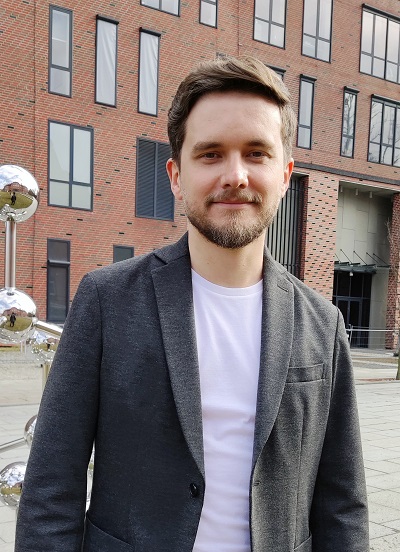
Marek Wagner, Ph.D.,
Head of the Research Group of Innate Immunity at Łukasiewicz – PORT
He received his Ph.D. in cancer research from the University of Bergen (Bergen, Norway) with part of his research performed at Harvard Medical School & Children’s Hospital Boston (Boston, USA). During his postdoctoral training he joined RIKEN IMS (Yokohama, Japan), where he worked on a recently identified subset of innate lymphocytes, which produce type 2 cytokines and are now called group 2 innate lymphoid cells (ILC2s). He contributed to the development of a new field of immunology by carrying out studies to assess the role of ILC2s in the tumor growth and progression.
His group studies ILC2s within the tumor microenvironment and their interactions with malignant and non-malignant stromal cells, using a variety of interdisciplinary approaches. The long-term research objective is to increase understanding of the mechanisms of tumor development and identify novel diagnostic and prognostic biomarkers as well as prospective therapeutic targets.
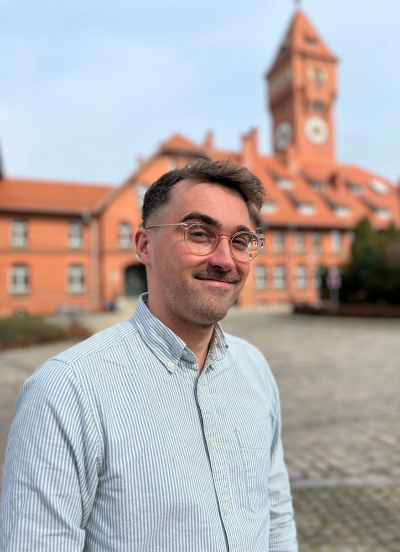
Mateusz W. Kucharczyk, PhD.,
Head of Cancer Neurophysiology Research Group, Łukasiewicz – PORT and Visiting Research Fellow, Wolfson SPaRC, King’s College London, UK
Mateusz earned Biotechnology degrees (BSc, MSc) from Jagiellonian University in Kraków. As a Marie Skłodowska-Curie trainee, he completed his PhD in Neuroscience (2019) at University College London, specialising in in vivo electrophysiology with Professor Anthony Dickenson and in vivo calcium imaging with Professor Stephen McMahon (King’s College London) to study cancer-induced bone pain. After learning optogenetics in Yves De Koninck Lab (Quebec, Canada), he worked as a PDRA in Dr Kirsty Bannister group (King’s College London), where he advanced opto- and chemogenetic techniques for studying descending modulatory circuits in health and disease.
His group bridges Neuroscience with Oncology, aiming to comprehend neurogenic regulation of carcinogenesis and associated pain. Employing state-of-the-art techniques (i.e., in vivo optical imaging, electrophysiology and optogenetics) they selectively sample and modulate activity of genetically defined neuronal populations and their effects on tumour biology. In this pursuit, the group aspires to forge innovative therapies for cancer and associated pain, rooted in a deep understanding of neuronal systems.
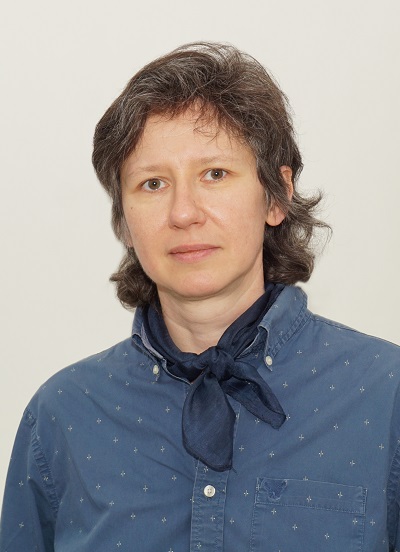
Patrycja Gazińska, Ph.D.,
Senior Leader for the Biobank Research Team at Łukasiewicz PORT Research Center in Wroclaw
For many years, Patrycja managed histopathology research projects and services for multidisciplinary teams at Kings College in London. From 2019 to 2021, she led a Digital & Experimental Research Pathology unit at the Institute of Cancer Research in London specializing in digital pathology, and molecular pathology, with specific application to breast cancer research. This included collaborative work with Merck on novel biomarkers for patient treatment stratification.
More recently she worked for AstraZeneca in Cambridge, applying computational pathology frameworks to oncology phase III clinical trials. Her primary research interest relates to breast cancer pathology and understanding how tumor microenvironment features predict clinical and biological aspects of this disease.
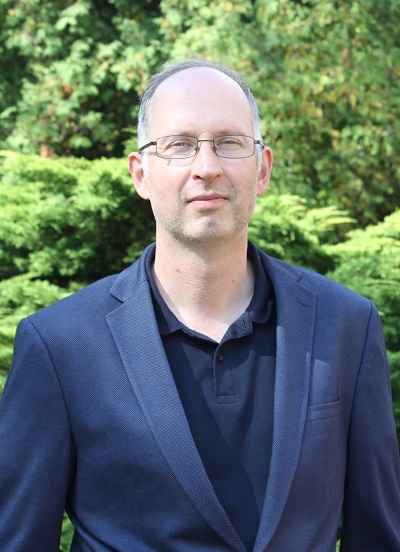
Michał Malewicz, Ph.D.,
Director of Life Science and Biotechnology
Michal’s scientific work began at the University of Warsaw (Poland) where he defended a master’s degree in molecular biology on the genetics of RNA metabolism in yeast mitochondria. There after Michal moved to Karlsruhe Institute of Technology (Germany), where his Ph.D. thesis focused on the function of the immune system in genetically engineered mice.
For his postdoctoral studies, Michal moved to Stockholm (Sweden) to work at the Ludwig Institute of Cancer Research (affiliated with the Nobel Karolinska Institute), where he developed new biochemical methods to study protein-protein interactions. In 2012 Michal was appointed as an Independent Group Leader at the MRC Toxicology Unit (United Kingdom) to build and run a scientific group working on mechanisms of DNA damage responses (DDR).
In 2019 Michal moved back to Germany to work as the Head of Molecular Biology at an early-stage biotech Genome Biologics, where he had directed the team working on novel human heart organoid technology. From the end of 2020, Michal is directing the Laboratory of Genome Dynamics (Łukasiewicz – PORT, Poland), where his group focuses on the mechanisms of DNA damage responses and their connection to cancer development utilizing CRISPR/Base editing genome editing technologies and advanced models of disease such as IPSC-derived human organoids. From the beginning of 2022, Michal had been appointed as the Director of Life Science and Biotechnology Centre at Łukasiewicz – PORT.
